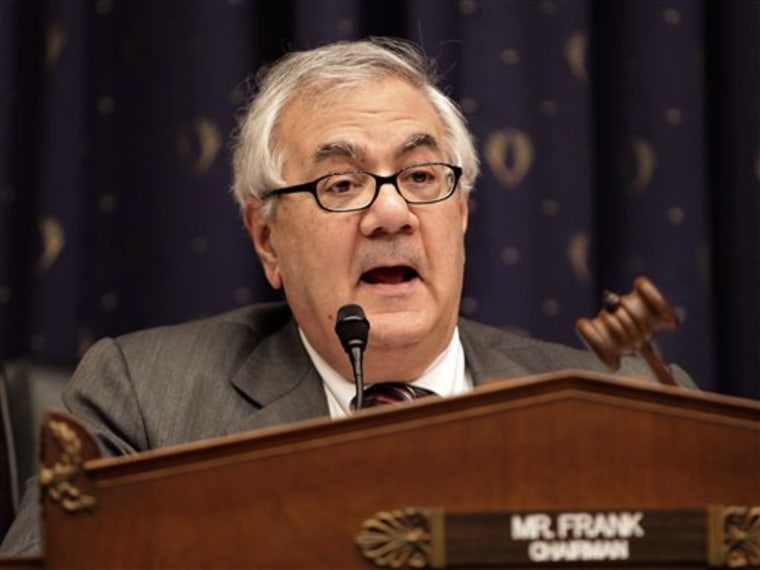A House panel endorsed a gentler approach Thursday to trying to stop bailed-out financial institutions from giving their employees big bonuses, as lawmakers indicated they were willing to put down their pitch forks and partner with industry to salvage the economy.
The bill directs Treasury Secretary Timothy Geithner and financial regulators to set standards that would determine whether a bonus is "unreasonable or excessive."
It would exempt institutions that agree to participate in a government-sponsored program aimed at buying up $1 trillion of bad debt, or "toxic assets," sitting on the books of major banks. Geithner proposed the new investment program on Monday.
The House Financial Services Committee adopted the measure by voice vote, paving the way for a floor vote as early as next week.
"Private investors need certainty"
The bill, sponsored by Democratic Reps. Alan Grayson of Florida and Jim Himes of Connecticut, was in stark contrast to the approach taken last week by lawmakers furious at insurance giant American International Group Inc. AIG distributed nearly $165 million in employee bonuses after the government committed more than $182 billion to keep the company afloat.
Fueled by populist anger, the House voted 328-93 to tax away 90 percent of any bonuses agreed to in 2008 and paid this year by AIG or other recipients of bailout money.
But that measure stalled in the Senate, as President Barack Obama warned not to "demonize" every investor. Geithner also said industry's help would be needed to buy up the billions of dollars of sour mortgage securities, or "toxic assets," sitting on the books of major banks.
"We cannot solve this crisis without making it possible for investors to take risks," Geithner wrote in an editorial published in The Wall Street Journal.
Rep. Barney Frank, D-Mass., the panel's chairman, said Democrats decided to exempt firms willing to participate in the effort because "we do want to encourage wide participation."
Democrats are walking a fine line. For Geithner's bank-rescue plan to work, private investors will have to trust that the government will keep up its end of the bargain. But as a recent flap over the AIG bonuses showed, Congress will intervene if it thinks the rules are unfair.
"Private investors need certainty that Washington will not change the rules of the game while the game is being played," said Rep. Spencer Bachus of Alabama, the committee's top Republican, who opposes the latest committee proposal.
The latest House bill would not force employees of insurance giant AIG to give back money already paid to them. But it would empower the government to stop future payouts by financial institutions even if employees have been promised the money.
Republicans opposed the bill because they said it was too vague, but Democrats said it was necessary to protect taxpayer dollars. They pointed to a provision that would require Geithner to take into account an employee's performance, as well as the stability of a financial institution before bonuses are paid.
"We need regulation that aligns the public's interest with the health of these institutions," said Himes.
